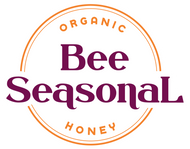Sustainable Beekeeping – Communities and Sustainability
Sustainably Sourced Honey - Organic Raw Honey
We see organic beekeeping as a means to help protect native areas and, at the same time, empower communities with a source of income. Beekeepers located in areas suitable for the production of organic honey are in a very special position. They are at the forefront of the battle for environmental preservation.

Because bees forage beyond the boundaries established by humans, beekeepers are able to harvest honey made from nectar collected in areas outside their properties. This honey can be used as food or can be sold to generate income for the beekeepers and their families. This secures the existence of people in these unique natural regions, helping to prevent rural exodus.

Now, if the areas from where the bees gathered nectar are clean, free of pesticides and pollution, beekeepers can charge a premium for their honey. This incentive encourages them to be stewards of their regions, protecting them from unsustainable development. Beekeeping can thrive in areas where normal agricultural cultivation is not possible. If vegetation is removed from a piece of land, for agriculture or pasture, the land can only be used for a short period of time before the nutrients are depleted. On the other hand, an intact forest—even on inaccessible slopes—can be a fantastic source of nectar and pollen for an entire lifetime.

In order to support responsible agricultural practices, we partner with beekeepers who follow organic guidelines for bee management and honey production. Every time you buy organic honey from Bee Seasonal® you help us promote sustainability and biodiversity!



Leave a comment